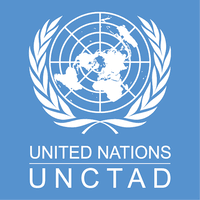United Nations Conference on Trade and Development (UNCTAD) says countries are increasingly recognising the need to implement reforms to ease the flow of critical goods and services.
Such critical goods and services include medical supplies and key agricultural products, across borders, while managing the COVID-19 pandemic’s economic consequences.
But sadly in Nigeria, the country’s disease control agency has reported six new deaths from COVID-19, thus bringing the tally to 158 nationwide.
The Nigeria Centre for Disease Control (NCDC) on Tuesday also announced 146 new cases of the disease that has now raised the country’s tally to 4,787 infected persons.
Of the 146 new cases reported from 20 states, Lagos records 57, Kano 27, Kwara 10, Edo nine, Bauchi eight, Yobe seven, Kebbi and Oyo four each, Katsina and Niger three each, Plateau, Borno, Benue and Sokoto two each, Gombe, Enugu, Ebonyi, Ogun, Rivers and Abuja one new case each.
However, according to UNCTAD, trade facilitation reforms are at the heart of countries’ responses to the economic slowdown, disruptions to global supply chains and shutdown of businesses due to COVID-19.
A new UNCTAD study underscores the critical role of national trade facilitation committees (NTFCs), the primary trade facilitation coordination mechanism, in helping countries implement impactful trade reforms to fight the pandemic.
UNCTAD’s Director of Technology and Logistics, Shamika N. Sirimanne, says “national trade facilitation committees are the right platform to bring together public and private sectors not only to address current bottlenecks to trade caused by the pandemic but also to prepare for recovery.”
The committees help establish contacts, coordinate actions, advise in negotiations and lead in mobilizing resources for trade facilitation projects.
In the wake of the coronavirus pandemic, some NTFCs have coordinated the establishment of trade information portals to ease trade by simplifying and explaining procedures and processes as well as COVID-19 emergency measures.
In countries such as Rwanda and Uganda, they have coordinated the dissemination of information on procedures for importing and exporting vital medical and pharmaceutical products.
Besides, they have worked with local authorities to expedite customs clearance and release of goods essential to combating the spread of the pandemic, such as masks, gels and disinfectants.
UNCTAD’s latest study on NTFCs expands on two previous ones conducted in 2015 and 2017, utilizing information from 52 countries with which the organization has partnered on trade facilitation measures over the years.
It spotlights how the committees are evolving fast to meet current challenges. The study reveals 12 major trends in the evolution of NTFCs around the world.
It shows how NTFCs evolve in aspects such as mandate, scope, institutional framework and composition while adapting to new emerging needs.
By knowing these trends, the committees can be improved to cater to emerging needs and preemptively address obstacles to their work.
The study underlines the need for countries to consider NTFCs as permanent platforms that coordinate national trade efforts not just for the implementation of the Trade Facilitation Agreement (TFA) of the World Trade Organisation (WTO), but also trade facilitation reforms beyond it.
“NTFCs’ mandate and scope of action need to be broader and adaptable to current needs of the country”, the study notes. Only then can the committees lead trade facilitation efforts in response to crises such as the COVID-19 pandemic.
NTFCs play an important role in the simplification of foreign trade procedures and in keeping costs of trade to a minimum.
They coordinate trade facilitation reforms by opening and guiding discussions between public and private stakeholders, enabling swift and actionable responses to emerging challenges.
NTFCs have long existed in various forms, but they have only started gaining traction in leading trade facilitation efforts in recent years.
In 2004, WTO commenced negotiations on trade facilitation, which concluded a decade later, resulting in the TFA.
When the TFA entered into force in 2017, signatory countries were required to establish and maintain an NTFC or an existing mechanism.
The body would facilitate institutional coordination and multi-stakeholder consultation for effectively implementing trade facilitation measures. More countries formalized the committees.
However, throughout the negotiations to date, institutional setup challenges have emerged in many countries, raising the need to further strengthen the NTFCs.






